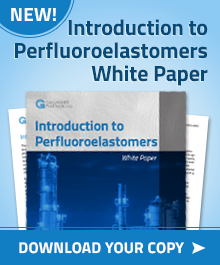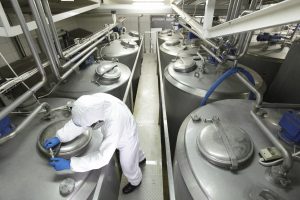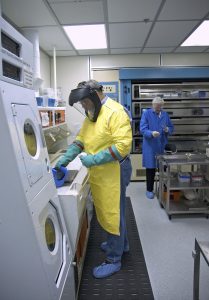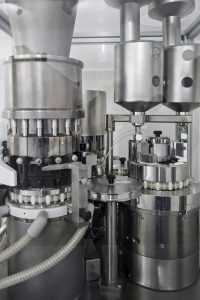
Common Industries in Which Perfluoroelastomer Seals are Used and Why
In general, perfluoroelastomers are the most expensive elastomer seals specified in the marketplace; however they also provide the highest performance sealing service. As with any product, the selection of these products should be the result of a cost-benefit analysis.
Oil Processing Industry

Chemical Process Industry

Elastomer seals are often used in mechanical seals. Mechanical seals are the critical components to prevent product leakage at pumps. Elastomer seals, in a mechanical seal, replaced packing as the preferred shaft seals in pumps for longer life and lower leakage. Mechanical seals on pumps and agitator shafts are critical components in many chemical operations, and failure of these components can shut down an operation. Mechanical seals in pumps or on agitator shafts may be in locations that don’t allow for easy access. For example, agitator shaft seals can be extremely large, and if a mechanical seal fails, a crane may be required to assist in seal replacement. This results in longer downtime, lost production and increased operating expense. The goal when choosing an elastomer seal is typically to maximize MTBR (mean time between repairs).
There are many other types of sealing applications at chemical plants including: valves, piping connections, instrumentation, lab equipment for testing product, and hoses. This equipment may need to handle numerous products. That is, a pump or valve may have different chemicals running through it depending on the production needs of the plant. A fluoroelastomer may handle one product stream, but ethylene propylene elastomer may be required for a different product stream. In this case a perfluoroelastomer seal would be used to handle both product streams and avoid down time to change out seals between production runs. Perfluoroelastomer seals are also used in applications where a product stream can vary in composition and differing trace chemicals might attack a lower performance seal. Finally, perfluoroelastomers may be used to reduce replacement part inventory. An alternative to stocking four of the same replacement valves, each containing a different elastomer for a specific process stream, is to stock one valve with FFKM seals which can be used in any of the applications.
Semiconductor Industry

This industry continues to push the high temperature envelope in order to improve processing efficiency. Temperatures above 200°C are becoming more common and the only products that can withstand these temperatures long term are perfluoroelastomers. In addition, new plasma gases are being developed to improve manufacturing performance. Oxygen plasmas, NF3, etc. can cause serious issues with non-perfluoroelastomers. Note that even FFKM materials will eventually break down in these extremely aggressive environments.
Another benefit of perfluoroelastomers to this industry is their low outgassing performance. Although not the case with every FFKM, there are specific formulations that are designed for low outgassing at elevated temperatures. Since chip manufacturing equipment is typically run at high vacuum and high temperatures, low outgassing is the key to avoiding product contamination.
Aerospace Industry

Pharmaceutical and Biotech Industry

The biotech industry is unique with applications that are typically batch processes and often require involve an equipment cleanout between batches. If the operation is clean-out-of-place (COP), the equipment is broken down, cleaned and the seals are replaced. For this service, the seals may only have to last a few days to a few weeks before being replaced and lower performance seals may be adequate. However, the equipment may be designed for clean-in-place (CIP). CIP usually involves cleaning the process tanks and piping with aggressive chemicals, steam sterilization and then drying with nitrogen. In this service, the batch process chemistry may not be an issue, but the aggressive chemicals used for cleaning and the steam may attack lower performing elastomers. If that is case, perfluoroelastomer seals can provide the chemical and steam resistance required for long term service. Finally, FFKM seals often have very low extractables (low contamination potential), a very important performance requirement for this industry.
If you have any questions on how perfluoroelastomer seals can implemented in your product or process, please contact the Gallagher Engineering Department for more information.
About the Author

Russ received a Bachelor of Science in Chemical Engineering from Columbia University in New York and MBA from the University of Delaware.
